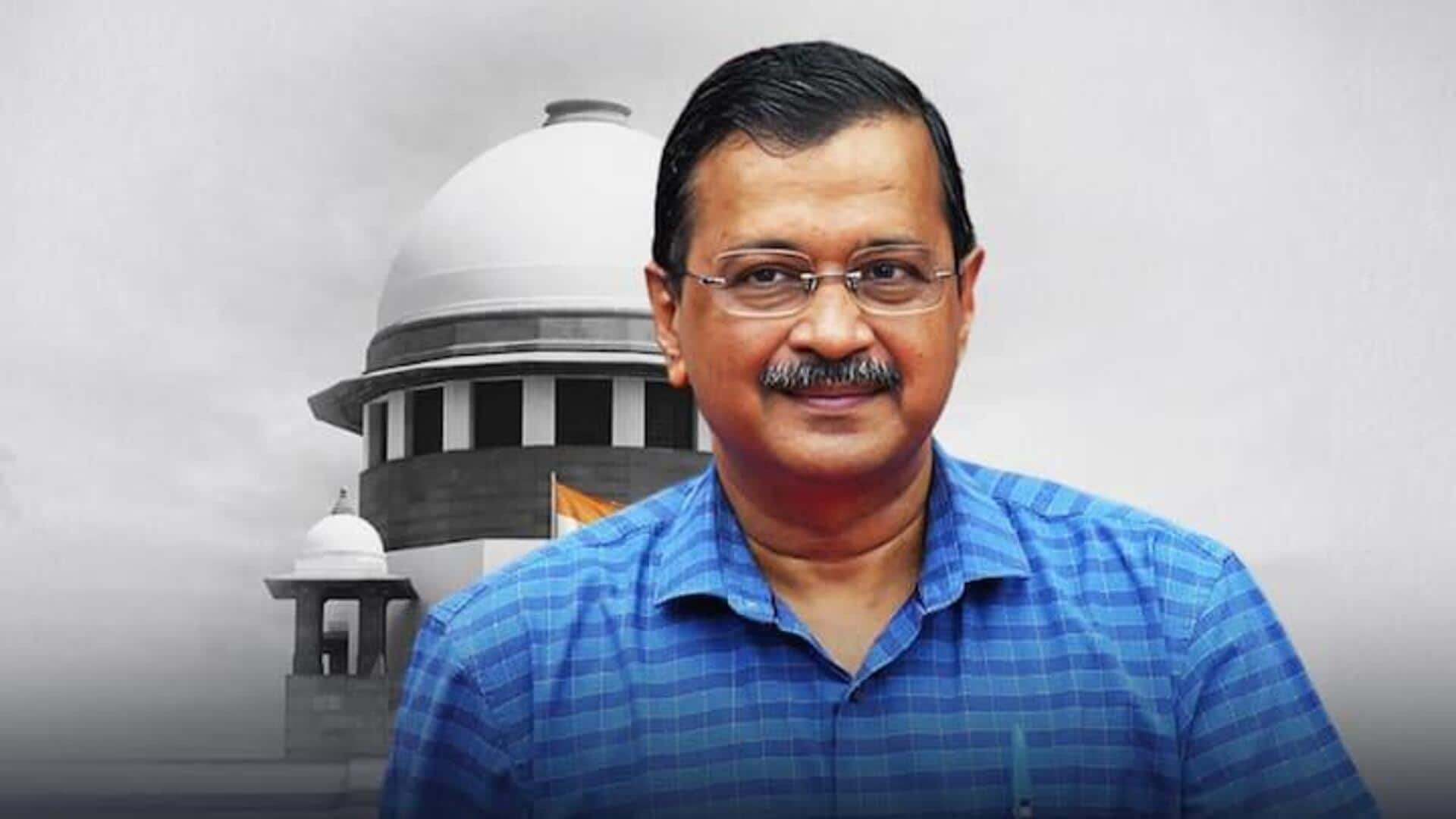
SC refuses urgent hearing of Kejriwal's plea seeking bail extension
What's the story
The Supreme Court vacation bench on Tuesday denied an urgent hearing for Delhi Chief Minister Arvind Kejriwal's plea seeking a seven-day extension of his interim bail.
The vacation bench recommended that the Chief Justice of India should decide on the plea's listing.
On Monday, Kejriwal filed a fresh petition, seeking an interim bail's extension on health grounds.
In the petition, Kejriwal highlighted the need for medical tests—including a PET-CT scan—due to a 7kg weight loss and elevated ketone levels.
Context
Why does this story matter?
On May 10, the apex court granted the CM interim bail for a 21-day term till June 1 to campaign for the Lok Sabha elections.
Notably, under interim bail guidelines, Kejriwal cannot visit his office or interact with any witnesses related to this case.
They also prohibit him from signing official documents.
To recall, Kejriwal was arrested by the Enforcement Directorate (ED) on March 21 in a money laundering case linked to the now-scrapped excise policy.
Plea timing
Supreme Court questions timing of Kejriwal's plea
The Supreme Court bench questioned why Kejriwal's plea was not listed for urgent hearing last week when Justice Dipankar Datta, one of the judges who granted the interim bail, was on the vacation bench.
In response to Singhvi's request for a seven-day extension, the bench stated that "this (plea) has been heard and reserved... Let this be placed before the Chief Justice and let him take a call."
Medical examination
Kejriwal's health condition necessitates medical tests
Kejriwal's legal counsel has argued that the medical tests are crucial for his well-being and requested the court to consider an extension for completing necessary medical investigations.
Preliminary examinations have already been conducted on Kejriwal by Max Hospital's medical team.
The Aam Aadmi Party (AAP) stated that "these may be symptoms of some serious disease" and that Kejriwal "needs to undergo PET-CT scan and many other tests."
Background
Excise policy case explained
In November 2021, the Delhi government introduced the excise policy for 2021-22.
However, less than a year later, it opted to abandon it following widespread corruption accusations.
Central investigation agencies asserted that wholesaler profit margins were artificially inflated to 12% from 5%, promoting cartelization and benefiting ineligible license holders.
The Kejriwal-led Delhi administration had refuted the allegations, arguing that the policy would have boosted revenue.
Information
AAP's alleged role in excise policy scam
The Central Bureau of Investigation (CBI) alleges that liquor companies involved paid kickbacks amounting to ₹100 crore to the AAP, some of which were routed to public servants. According to the ED, the party used the illegally generated funds to campaign for the Goa and Punjab elections